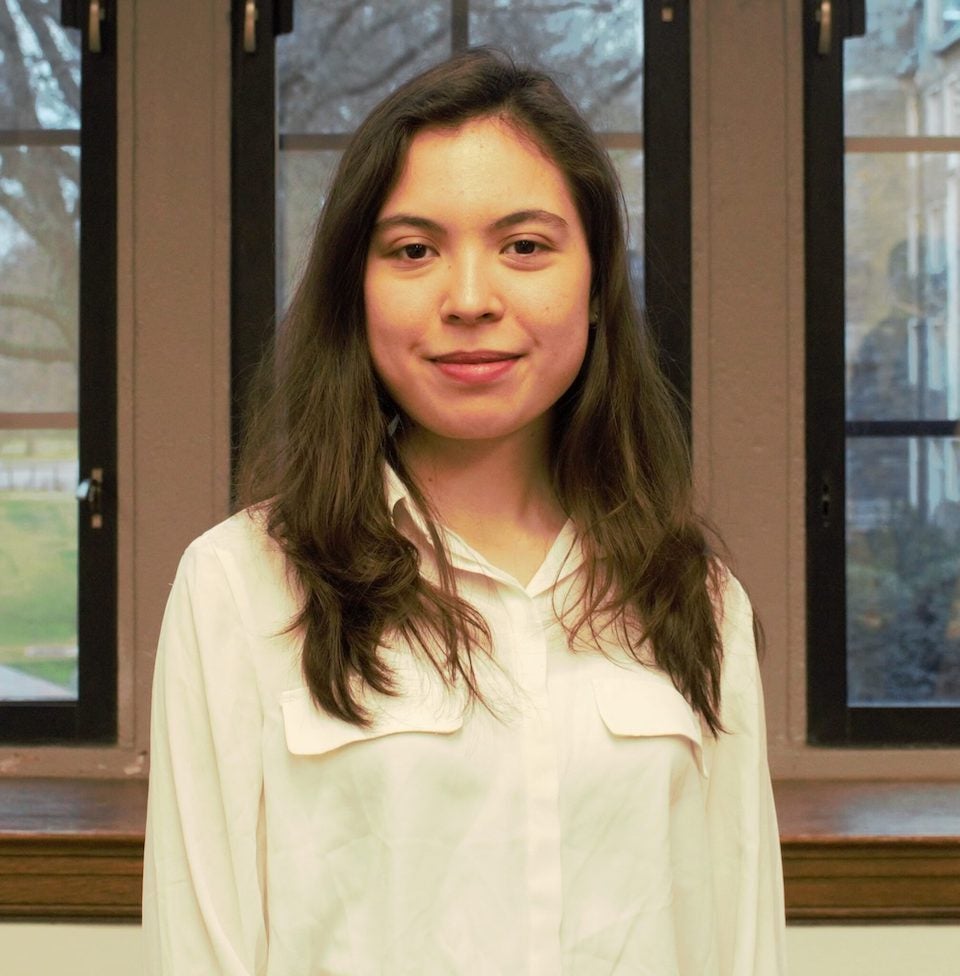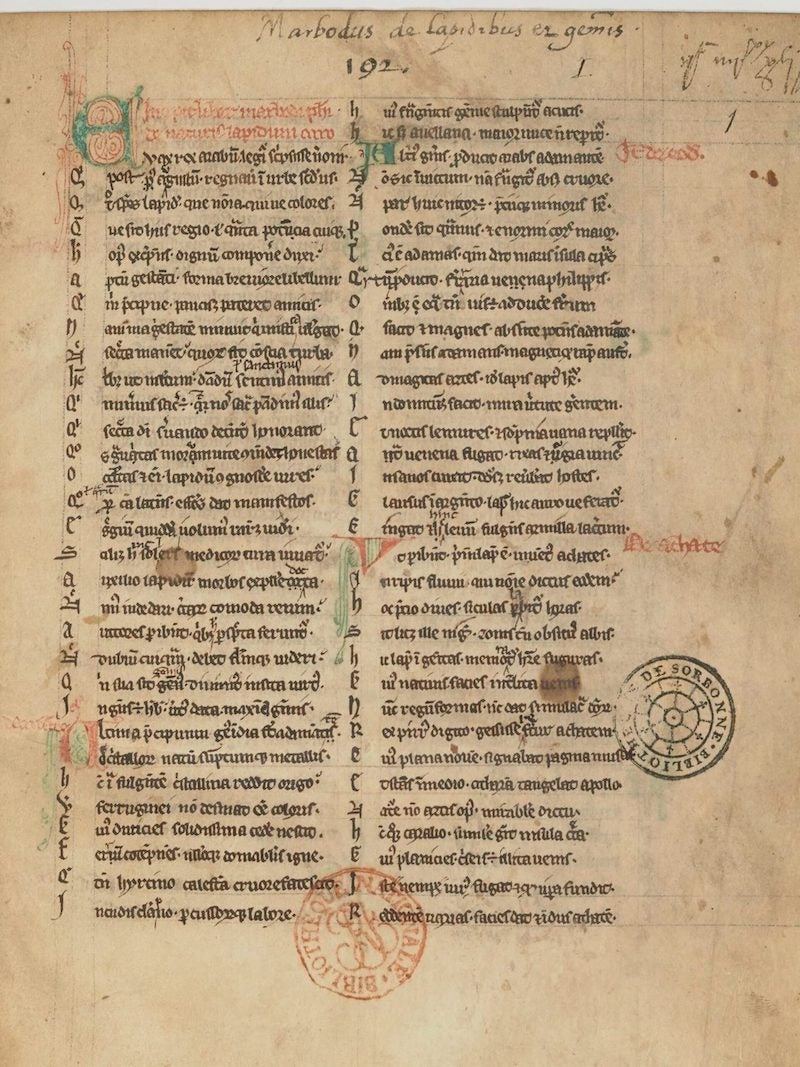Announcing our Global Medieval Studies Awards for Academic Excellence
Posted in Announcements Student
This year the Global Medieval Studies Program solicited nominations from our Affiliated Faculty for student research projects deserving of special recognition. We are pleased to announce three Global Medieval Studies Awards for Academic Excellence from 2022.
Congratulations to our prize winners – and to all of our students, who have shown such admirable fortitude and creativity under such adverse conditions in the 2021-22 academic year.
Sarah McNamer
Director, Global Medieval Studies Program
* * * * *
Rizana Tatlock, Honors B.A. thesis, French and Francophone Studies:
“The Stone of Love: The Ruby in Medieval Lapidaries”Advisor: Prof. Joe Johnson
In this meticulously researched senior thesis, Rizana Tatlock investigates an under-examined genre of medieval text: the lapidary (book of stones). Against the grain of scholarship on this topic, which has found in the so-called “Christian lapidaries” of the Middle Ages a poorly executed attempt to impose Christian allegories on top of lapidary material inherited from pagan antiquity, she argues that the delicate synthesis between Christian and pagan material was in fact successfully accomplished in these texts. She does this through an extended analysis on one particular stone, the ruby, in its relation to the theological virtue of love/charity.


Thomas Batterman, Honors B.A. thesis, History: “The Plague that Didn’t Happen: Yersinia pestis and the Lombard Conquest of Italy, 565-572
Advisor: Prof. Tim Newfield
There may be no field in medieval European history today as interdisciplinary and fast-paced as plague studies. Historians, ecologists, paleogenomicists, archaeologists, art historians, climatologists — all are engaged. In The Plague That Didn’t Happen, Tommy Batterman dives right in, grappling with an array of discrete datasets — numismatical, palynological, textual — to reevaluate commonplace thinking about a plague outbreak in the 560s CE that for centuries has been thought to have facilitated the Lombard conquest of Italy. Via a painstaking analysis of modern scholarship, Paul the Deacon’s account of the plague and tens of other medieval sources, both contemporary to the alleged outbreak and noncontemporary, Tommy demonstrates convincingly that that outbreak of the First Plague Pandemic did not happen. His reassessment of widely perceived knowledge will compel other reappraisals of late antique plague epidemics. Considering the weight assigned to individual outbreaks in cultural, economic, political and social histories of the era, and the significance of ‘hard dates’ for the paleosciences, Tommy’s work, and more scholarship of its sort, will have consequences that reverberate throughout plague studies and reshape the way we imagine and the way we study first-pandemic plague.
William Bartlett, Honors B.A. thesis, History: “Edat Hispana sententiam suam: Orosius’ Hispanic History”Advisor: Prof. Tim Newfield
Questions of identity in late antiquity have been hotly debated for decades. In recent years, human genomes of late antique peoples have been introduced to the debate, but to grasp how people of the era themselves identified we must return to the textual evidence. In ‘Edat Hispania Sententiam Suam’, William Bartlett asks whether the late antique historian-theologian Orosius sought not merely to craft a Hispanic identity in his Historiarum Adversum Paganos Libri VII but, more strikingly, a Hispanic history. To do so, Will digested a wealth of scholarship, traditionalist and revisionist, in English, Spanish and German, and parsed several key moments in the history of Spain encountered in Orosius’ text — like Orosius’ telling of the Siege of Saguntum (219 BCE) and the Fall of Numantia (133 BCE) — and Orosius’ handling of Hispanic emperors — like Trajan and Theodosius. To discern what was new in Orosius’ telling of those events and personages, and thereby what Orosius was intending to achieve, Will consumed the full array of Roman writing that Orosius drew on which is either extant today or reconstructable. Via his systematic interrogation of many texts, Will has demonstrated that embedded in Orosius’ work is a Hispanic history and that Orosius’ desire to construct a Hispanic history considerably shaped what and how Orosius wrote. We are reminded, therefore, just how crucial it is to come to terms with the motivations of the authors whose texts we study today.
